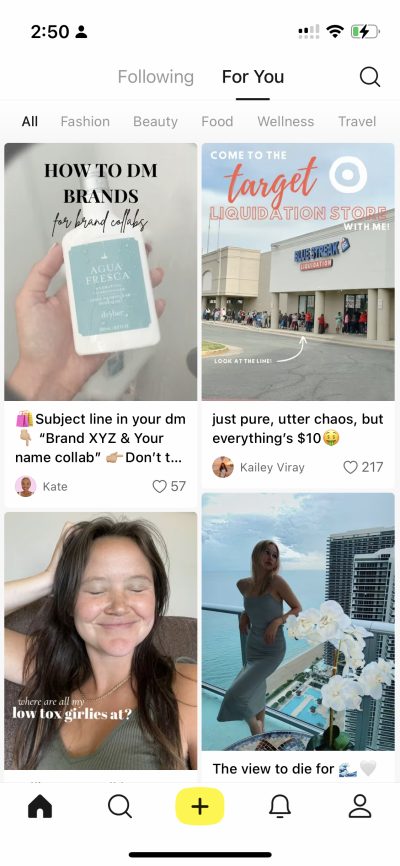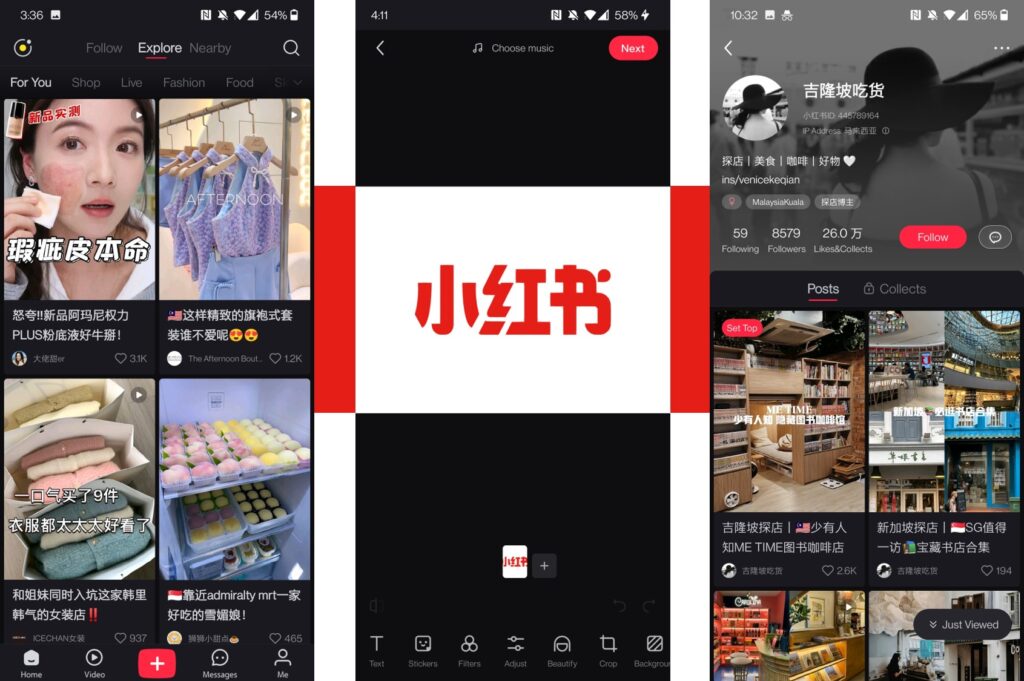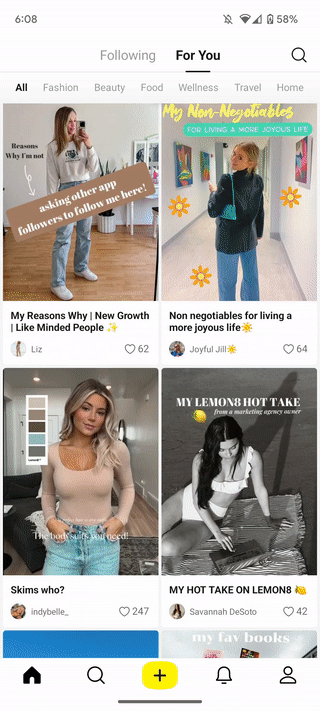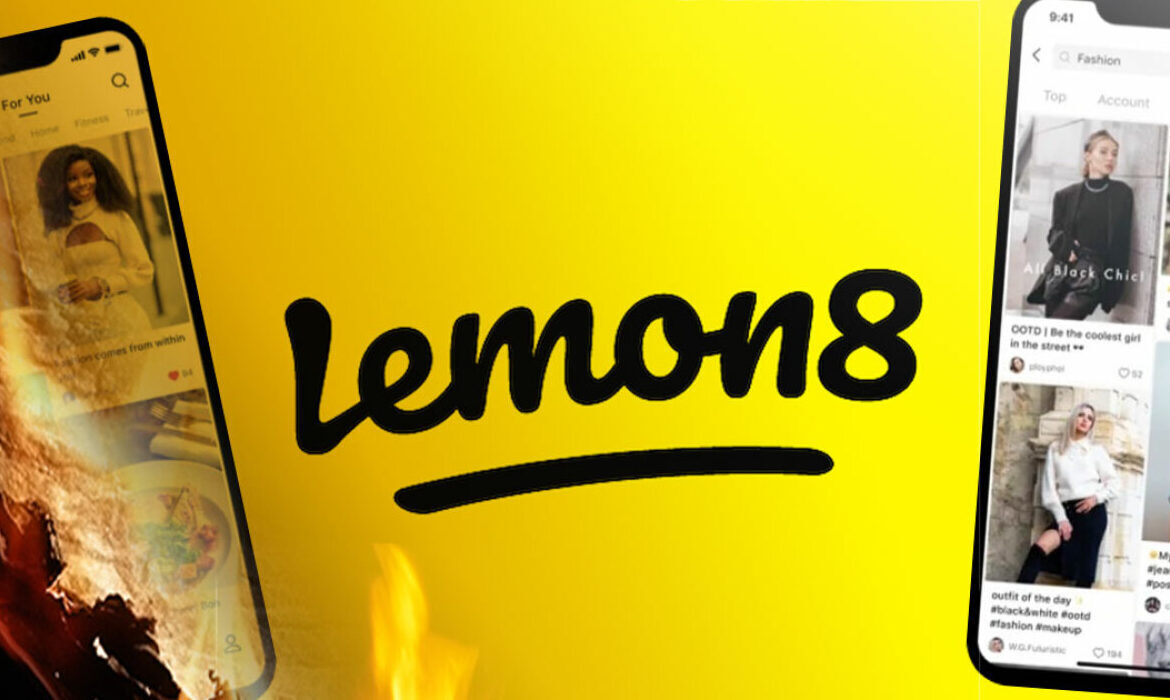Lemon8, TikTok’s sister app struggles in the US, users cite inorganic feel and influencer bias
Lemon8, the sister app of TikTok by ByteDance started off positively. Thanks to TikTok’s reach and success in the international market, it became widely popular. But like every new app launched, Lemon8 too has become saturated for a very good reason. While U.S. lawmakers were debating on a ban on TikTok earlier this year, parent company ByteDance was quietly preparing the launch of its social media app Lemon8.
TikTokers were excited about the latest platform, and the app downloads skyrocketed placing the app at #2 in the App Store in the U.S. Before we dive into what issues that app is facing, here is a brief description of Lemon8 for those who have never heard of it.
Lemon8, what is it?

Image credit- Rest of World
Lemon8 is a social media platform, best known for fusing Instagram and Pinterest. A lifestyle-based app, it allows content creators to share photos and videos curated around a specific topic. Initially launched in Japan in 2020, it quickly gained traction before reaching its peak popularity in the western markets three years later. The app features a main side-by-side vertical feed where users can post images and videos and decorate them with in-app templates. The platform broke the barriers between audiences and influencers with its feature that allowed creators to tag their posts with product details, links, and price breakdowns.
Specifically designed with the younger Gen Z audience in mind, the app is more about aesthetics and DIY tips, unlike other social media spaces. Food, wellness, fashion, beauty, home, travel, and productivity are the seven content categories. Under each topic, one can find recommendations, video tutorials, and perfectly crafted content that appeals to the eye.
But as the initial hype died down, like any other newly launched application, users faced problems with the app. Lemon8’s popularity tanked and since then, its DAUs have nearly halved from 11,930 to 6,360.
Users say Lemon8’s algorithm lacks the magic of its sister app TikTok: “I mostly get bible content from religious people and weight loss tips, and I’m not interested in either of those”https://t.co/GlSBCKlS1k
— Rest of World (@restofworld) July 19, 2023
Aesthetically curated or just a gimmick?
Lemon8, launched as a follow-up app for TikTok, flopped in the U.S. Users complain that the app is too pretty and well-curated to the point of feeling fake. Here are some problems users feel need to be addressed
- The app feels inorganic and well-manicured
- It focuses more on influencers’ needs rather than ordinary users
- Feed crafted to blandness
- Feels like an app created for creators, by creators
- Ordinary users feel left out
- Algorithm lacks gauging user preferences and keeps showing recommendations that users were not interested in.
- App does not support sharing external links, making it difficult to build a brand on social media.
- Everything was well presented and well-crafted when users refreshed their feed
- Users complained of declining engagement
The app sets unrealistic standards and idealizes lifestyles. One user commented that the app reminded her of Pinterest in its early days when it was just “white girls” who posted about their lifestyles. The app is filled with topics like “The time I realized skinny privilege is real”, “Hot Girl Lunch Ideas” and more.
Another user pointed out that niche topics like dark academia, or cottagecore did not gain as much traction as conventional topics did. The user also mentioned that the app did not feel ready to have a real-world conversation. Lemon8 is also recruiting lifestyle influencers to collaborate with them on a paid partnership. In return, the creators are promised exposure and guidance. One of the ads posted by the platform stated that they were looking for “U.S. based women aged 18-25, and had an ‘It Girl’ aesthetic with a background in creating ‘high quality’ beauty and fashion content.
A Chinese app rip off?

Image Credit- First Com Academy
Lemon8 is a replica of the Chinese social media giant and e-commerce platform called “XiaoHongShu” which literally translates to a “Little Red Book.” It has been deemed the “lifestyle bible” and hosts more than 200 million monthly active users. In simple terms, it can be described as China’s own Instagram. The platform targets women in their 20s and 30s from first and second-tier Chinese cities. Thus, women belong to affluent families with higher spending capacity. The female-to-male ratio on the app is 8:1 (88.8% of females and 11.1% of males).
Users share their lifestyles, shopping experiences, and other content in the form of photos, videos, texts, and live streams. Content can range from beauty and cosmetics to food, fashion, travel, fitness, entertainment, etc. Social features allow users to discover the latest brands. It is immensely popular among beauty and fashion brands like Chanel and Dior.
ByteDance saw the absence of such a platform on the global market as an opportunity to replicate XiaoHongShu’s domestic success. Therefore, they launched an “overseas Little Red Book” Lemon8 in the hopes of capitalizing on TikTok’s reach and success.
Our thoughts
In their optimism about imitating a widely successful app, ByteDance, and Lemon8 failed to consider the drawbacks. XiaoHongShu users also complained that the app set unrealistic standards for women’s beauty and wellness. Over in the US, its adversary faces similar problems. When one opens Lemon8, the very first thing that runs through the mind is that it is filled with clickbait-ish content, including how to lose weight in 40 days, apps to get free products from any brand, etc.

Video credit- DreamlikeDiana
In addition, the app was full of white women between the ages of 20 and 30. They promoted beauty, Christianity-related posts, and high fashion, which not many users can relate to. This in many ways contrasts with the ongoing body positivity initiative that encourages women to feel comfortable in their own skin. As there are no brands allowed on Lemon8, it is impossible to convince people to make a purchase. Despite losing active users, ByteDance is still promoting the app to increase outreach, and posting upcoming job listings as well.
Lastly, the app lacks inclusivity. Lemon8 is women-dominated with next to zero male audience. It is highly likely that Lemon8, which is also owned by a Chinese company, will be banned like TikTok.
All in all, like every new app, Lemon8 too has had its fair share of fame, is becoming less and less relevant to its audience. It has come to this point also because the platform has not taken any plausible action to convert targets into users. The app feels like a space with pretty content, but not relatable. Users have mentioned giving it a try again, if and only if the platform brings changes to make it more than what it already is.
What do you think is the future of this obsolete social media app?
Read More: TikTok Gets More Visual, Launches ‘Interactive Add Ons’ For In-Feed Ads


